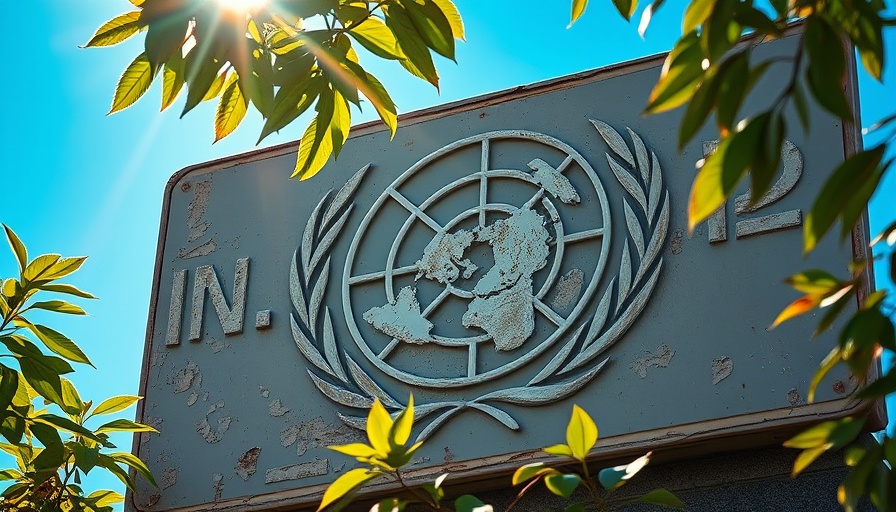
Understanding UNRWA's Role in Humanitarian Efforts
The United Nations Relief and Works Agency for Palestine Refugees (UNRWA) has been a crucial player in providing assistance to Palestinian refugees, particularly in regions facing socio-economic challenges. With its services ranging from education to healthcare, UNRWA has strived to uplift communities that have suffered for decades due to ongoing conflicts.
Impacts of Stripping Immunity
Recently, the U.S. Department of Justice’s decision to strip UNRWA of its immunity opens the agency to a $1 billion lawsuit from families of victims affected by the October 7 violence. This controversial move is not just a legal maneuver but represents a larger political climate that questions humanitarian agencies’ roles in conflict zones. Without its diplomatic protections, UNRWA faces heightened risks of financial instability, which could impede its ability to continue providing essential services to the most vulnerable populations.
The Role of Politics in Humanitarian Aid
Humanitarian aid should ideally transcend political disputes, focusing solely on the needs of those it serves. However, the intertwining of humanitarian actions with political agendas can often complicate their efforts. UNRWA, while pursuing a noble mission, is now caught in the middle of a contentious political struggle between parties with divergent views on the Israeli-Palestinian conflict. This incident exemplifies how political decisions can affect the most basic forms of humanitarian assistance.
Future Predictions: The Landscape of Humanitarian Aid
With the U.S. government placing restrictions on agencies like UNRWA, we might see other countries stepping up to fill the gaps left behind. In the near future, this could lead to a greater demand for humanitarian assistance from non-traditional sources, such as local NGOs or faith-based organizations. It’s essential for individuals and communities to stay informed and engaged with these changes, as the landscape of humanitarian aid continues to evolve amidst political tensions.
How This Affects the Faith Community
Mission-minded individuals and socially conscious groups stand at a critical juncture. Understanding the implications of government actions on humanitarian work is vital for those dedicated to upholding justice and mercy in our world. Engaging with organizations involved in advocacy can help ensure that humanitarian aid efforts remain uncompromised by the often volatile nature of politics. This is a call to action for believers to support channels that promote peace and aid that transcends political barriers.
A Call to Action: Empower the Helpers
Now is the time for communities of faith to come together and support organizations dedicated to humanitarian work. While governmental decisions may hinder these efforts, individual action can spark change. Whether through donations, volunteer work, or raising awareness, each person can contribute to the mission of aiding those in desperate need. As supporters of the persecuted church and global justice, let us remain vigilant, compassionate, and proactive in our pursuit of humanitarian efforts.
 Add Row
Add Row  Add
Add 








Write A Comment